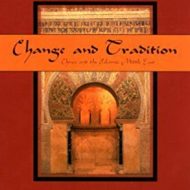I was able to attend the lunch that discussed combating religious intolerance as part of the Religion Matters series. I found the discussion very interesting and eye-opening. Dr. Chad Bauman helped to lead the discussion in the Diversity Center. He began the discussion by presenting a couple of examples of speeches from America’s past that presented religious minorities in a negative light. Some of the minorities discussed in these passages were Catholics, Mormons, and Muslims. There were many commonalities in these speeches that isolated the minority group. One of these ideas was that the Americans believed that the minorities were being loyal to the “other”. They believed that they were not loyal to the American ideals, people who were not American, and a location that was not America. For example, for Catholics, this would include being loyal to the Catholic beliefs, being loyal to the pope, and the Vatican. Another commonality in the passages was the idea of authoritarianism. There was a belief that the minorities had a blind loyalty with their beliefs and that created an “us” and “them” in society as the majority did not believe the minority should have had the beliefs that differed from their own. During the discussion, we clarified that the majority in the United States in Anglo-Saxon protestants. This was surprising to me as I have always thought of Catholics being a religious majority. However, I have since realized that where I grew up, in Cincinnati, there is a large population of Catholics with many Catholic elementary and high schools.
As we continued the discussion, we were asked where is a similar mentality seen today? It was brought up that for some there is a sense that if one is not adhering to Christianity then one does not believe in a God. Then it was stated that there is a belief that if one is not Christian, then one is not being patriotic. I found this insight very interesting, as I had never really given this idea much thought, but I can understand where this can be seen in our society. It was brought up that many of these stereotypes and beliefs have immigrated with us from Europe when the Americas were first being founded. These stereotypes have remained the same for the most part but have only varied in their expressions over the years.
The final point we discussed was ‘how these stereotypes manifested today and how can we combat them’. One of the professors who attended brought up that some students had a belief that their professors are not religious or are concerned to share with their professors their own personal religious or political views. I may have a different perspective on this idea, as my mother was a principle when I was younger, but I have never had this belief and I find it interesting that some people have this belief. Additionally, we discussed the idea that most people do not realize the extent of their religious illiteracy and that there is a monolithic nature in our society. This nature has one specific view and then creates generalizations regarding the “other”. I found this point to be very interesting as, for the most part, I have not experienced the same situation. Growing up, I went to a very diverse parochial elementary school and then a Catholic high school, therefore, I believe that I was almost given a false idea about the knowledge of others about minorities as both of these schools had done well examining and educating various minorities in our society. Attending this discussion was very educational for me as it opened my eyes to many of the “general views” of others and their views on minorities in our society today.
